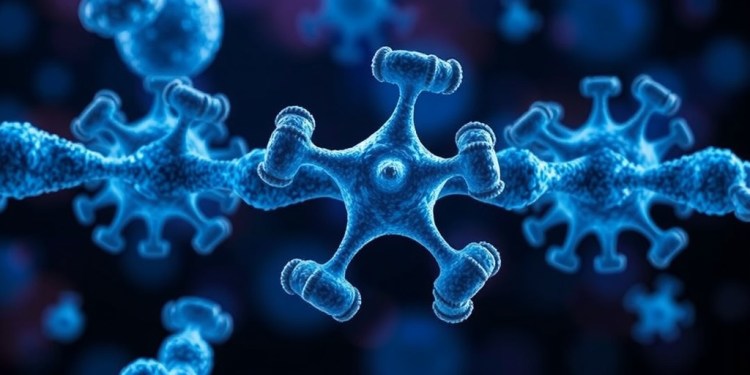Peking University has unveiled a groundbreaking computational platform, named ICRAFT, designed specifically for the identification of targets in cancer immunotherapy. This significant advancement comes from the esteemed Professor Zeng Zexian’s research team at the Center for Quantitative Biology, and marks a collaborative effort with the Peking University-Tsinghua University Joint Center for Life Sciences. Their findings were recently published in the distinguished journal, Immunity, underscoring the immense potential this platform holds for the future of cancer treatment.
The emergence of precision immunotherapy strategies is a pressing concern in medical science, especially given the intricate challenges posed by various types of cancers. Traditional therapies often fall short when faced with tumor resistance, leading to a desperate need for innovative approaches that not only target tumor cells but also enhance the activation and effectiveness of immune cells. ICRAFT steps into this breach, promising to revolutionize our understanding and identification of cancer immunotherapy targets by focusing on genes that play dual roles in both cancerous and immune cells.
At the core of ICRAFT’s design lies a sophisticated integration of extensive datasets, including 558 CRISPR screening datasets, 2 million single-cell RNA sequencing datasets, and 943 RNA-Seq datasets sourced from clinical immunotherapy samples. This comprehensive amalgamation of data provides an unprecedented foundation for analysis, allowing researchers to systematically filter through vast amounts of information to uncover genes that regulate tumor dynamics and immune system responses. This paradigm shift in data utilization not only fills a significant gap in current immunotherapy research but also sets a new standard for future investigations in this paramount field.
One of the standout discoveries from the ICRAFT analysis is the identification of the TNFAIP3 gene, commonly referred to as A20. This gene exhibits a remarkable dual role that poses both immunoregulatory effects in tumor cells and CD8+ T cells. In tumor cells, when TNFAIP3 is lost, it triggers a cascade of events that enhance the susceptibility of these cells to immune destruction. Specifically, the activation of TNF-induced apoptosis, along with the upregulation of NF-κB signaling, results in increased chemokine expression that facilitates T cell infiltration. This discovery elevates TNFAIP3 as a strategic target in enhancing the efficacy of existing cancer treatments.
Meanwhile, in the realm of immune cells, particularly CD8+ T cells, the inactivation of TNFAIP3 has demonstrated increased cytotoxic capabilities. This enhanced ability underscores the gene’s potential power in improving therapeutic interventions that aim to bolster T cell attacks on tumors within the microenvironment. Furthermore, the study also revealed other genes such as PTPN2 and SOCS1, which exhibit similar dual functionalities, thus indicating multiple avenues through which immunotherapy could be enhanced by targeting specific genes in combination therapies.
The future implications of the ICRAFT platform extend far beyond academic curiosity; they have profound potential to transform cancer treatment paradigms globally. Health professionals and researchers worldwide can access this open-source tool, ushering in a new era of collaborative innovation aimed at identifying novel immunotherapy targets. The platform is not merely a significant development for the academic community but stands to impact clinical practices, potentially leading to improved patient survival rates and overall treatment efficacy in cancer therapy.
As cancer research progresses, the quest for combination therapies that leverage this dual target discovery becomes increasingly vital. ICRAFT provides scholars with a robust framework for unearthing therapeutic targets that can enhance patient responses by bolstering immune activity while simultaneously addressing tumor vulnerability. This could mark a critical leap forward in treatments that are increasingly personalized and precisely tailored to individual patient needs.
Moreover, the integration of multi-source CRISPR and RNA-Seq datasets not only renders ICRAFT a powerful analytical tool but also highlights the potential for expansive data-sharing and collaborative research. The scientific community can now work together, sharing insights that could unravel intricate tumor-immune interactions and significantly accelerate the pace of discovery in cancer research.
In conclusion, the advent of ICRAFT stands as a testament to the relentless pursuit of innovation in cancer immunotherapy. It embodies the amalgamation of cutting-edge technology, rigorous research, and collaborative synergy, ultimately driving us closer to the effective and targeted treatment of cancer. The journey from discovery to clinical application may be long, but with tools like ICRAFT, the horizon appears far more hopeful for future cancer therapies.
As the landscape of cancer research evolves, the significance of ICRAFT’s findings will undoubtedly resonate throughout the scientific community. The imperative now lies with researchers, clinicians, and biologists to capitalize on this knowledge to devise groundbreaking therapies that push the boundaries of what is currently achievable in cancer treatment. The fight against cancer may be daunting, but with efforts like those at Peking University, progress is not only possible; it is imminent.
Subject of Research: Cancer immunotherapy and target identification
Article Title: Integrated computational analysis identifies therapeutic targets with dual action in cancer cells and T cells
News Publication Date: March 31, 2025
Web References: Read the Paper
References: 10.1016/j.immuni.2025.02.007
Image Credits: Center for Quantitative Biology, Academy for Advanced Interdisciplinary Studies, Peking University
Keywords: Cancer immunotherapy, Gene targeting, Target mRNA, Cancer research
Tags: collaboration in life sciencescomputational tools for immunotherapyCRISPR screening datasets in immunotherapydual function genes in cancer treatmentenhancing immune cell effectivenessICRAFT platform for cancer immunotherapyidentifying cancer therapy targetsinnovative approaches to cancer therapyprecision immunotherapy strategiesProfessor Zeng Zexian’s researchsingle-cell RNA sequencing in cancer researchtumor resistance challenges





